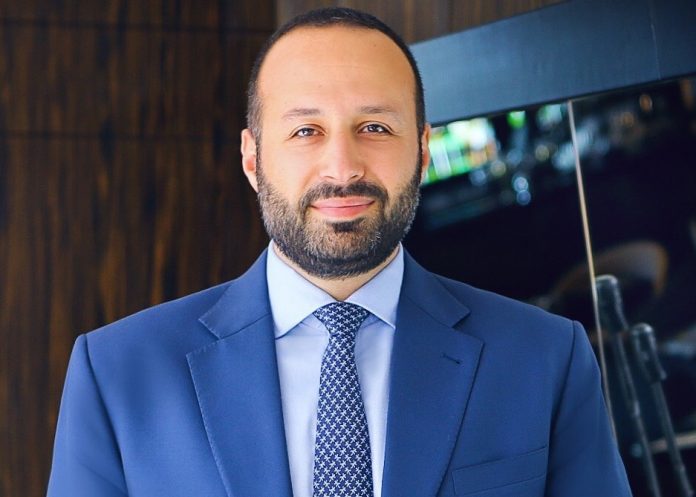With so many investment managers around the world looking to deploy capital, it is their role to efficiently allocate that capital into the projects that provide the greatest return for investors, taking into consideration the various risks involved. Climate change ranks as one such risk, one that is increasingly growing in both significance and materiality and investment managers must not ignore it.
Assessing risks with data
As we’ve seen at the recent COP26 summit in Glasgow, the global momentum towards addressing the climate crisis seems stronger than it has ever been. With this region hosting the next COP, it will certainly accelerate the importance of this issue across the Middle East. Regulators are forcing action, the private sector is displaying the will to play a role and perhaps most importantly for financial services, the end investors are demanding action.
However, the financial infrastructure must exist to allow asset managers to allocate capital effectively. This requires clear, comparable, quality data in order to properly assess the risk that environmental factors present, alongside social and governance issues, and this data remains vague. The work of TCFD (Taskforce on Climate-related Financial Disclosures), IFRS (International Financial Reporting Standards) and SASB (Sustainable Accounting Standards Board) to enable this data to become available across the board and the newly-launched International Sustainability Standards Board (ISSB) are certainly a step in the right direction.
For companies in the Middle East looking to attract international investment, there has never been a greater need to engage with these initiatives, but their record is patchy. Of the almost 3,000 companies to have signalled a willingness to make climate disclosures under the TCFD framework, just four are in the Gulf and a further 10 in the wider MENA region. However, Saudi Arabia, Bahrain, Kuwait, Qatar and the UAE have all joined the Sustainable Stock Exchanges (SSE) Initiative and have been pushing the companies listed on their bourses to report ESG metrics with varying degrees of success.
In October 2021, Saudi Exchange issued ESG disclosure guidelines for the more than 200 companies it hosts and, as of the end of 2020, over 85% of both the Tadawul All Share Index and the S&P Pan Arab Composite displayed ESG scores, up from just over 60% in 2017. However, there has been little discernible activity since an announcement in August 2020 that it would launch a Saudi ESG index with MSCI. The UAE has gone a step further in insisting that all public joint stock companies listed on the Abu Dhabi and Dubai bourses submit a sustainability report within 90 days of the end of the financial year.
The need for standards
In addition to data, we see two other gaps in the market. Investment products often get touted as ‘green’ investments without a clear statement of objectives, a description of the investment process or an outline of stewardship activities. We aim to eliminate this ‘greenwashing’ with our recently-released Global ESG Disclosure Standards for Investment Products. They stand as the first voluntary standards designed to enable investors, consultants, advisors and distributors to better understand, compare and evaluate ESG investment products.
The issue of standards is a challenge for all companies, not just those in the Middle East. Attempts to stop greenwashing led to the publication in 2021 of the EU’s 550-page Taxonomy Regulation, a classification tool that seeks to provide clarity for companies, capital markets and policy makers on which economic activities are sustainable. Rather than repeating that feat, Gulf economies would be wise to find a set of ESG standards that work for them but are recognized globally to help support investment flows.
The importance of practical skills
In addition to standards, investment professionals need practical skills to understand corporate ESG disclosures, effectively evaluate them and communicate them to their clients. Our research has shown that while seven out of every 10 investment professionals now use ESG data, only 11% are confident that they are equipped to understand it. What is needed is a critical mass of investment professionals fluent in the language of ESG Investing and who are able not only able to understand disclosures, but also to ask the right questions to corporate issuers and correctly advise investors. Our Certificate in ESG Investing goes a long way in addressing this need.
As some of the most discerning when it comes to ESG, Middle Eastern investors are certainly keen to get on top of the detail. Research last year from communications agency Edelman found 89% of Middle East investors expect companies to face increasing levels of litigation as a result of not delivering on ESG promises, higher than the UK, Netherlands, Canada, and Japan, while 86% said they “actively look” for evidence companies are not living up to their ESG disclosures. The region’s stock exchanges are also helping to equip them with the tools they need to make those discerning decisions. Since signing up to the SSE, exchanges in Bahrain, Abu Dhabi, Dubai, Qatar, Kuwait and Egypt have been offering ESG training.
With these three key aspects coming together, alongside commitments from both business leaders and governments, we can incentivise, enable and scale the role that finance can play in the transition to a more sustainable world.











